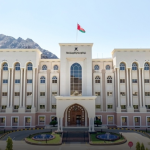Logistics services play a vital role in driving economic development and facilitating the movement of goods, as emphasized by Dr. Abdullah Al-Rabeeah, advisor to the Royal Court and general supervisor of the King Salman Humanitarian Aid and Relief Center. These services help reduce costs, improve supply chain efficiency, and enable companies to maintain a competitive edge, leading to greater prosperity. During the Global Logistics Forum 2024 in Riyadh, Dr. Al-Rabeeah highlighted the importance of logistics in global trade, addressing over 10,000 participants from various sectors.
Despite the benefits of logistics services, Dr. Al-Rabeeah expressed concern about the challenges faced in delivering humanitarian aid to vulnerable populations due to increasing regional crises. These crises often hinder aid delivery or require alternative routes through neighboring countries. Conflicts have made major transport routes more vulnerable, and cyberattacks have disrupted government systems and communication networks. In response to these challenges, Dr. Al-Rabeeah proposed the establishment of a Logistics Aid Council to ensure unrestricted access to airports and simplify aid delivery.
The proposed Logistics Aid Council would consist of governments, regulatory bodies, transport authorities, private sector companies, and NGOs, aiming to waive fees and taxes on aid-carrying aircraft and simplify delivery processes to reduce costs. This initiative seeks to address the growing humanitarian funding gap and ensure that aid reaches those in need efficiently. By streamlining logistics for humanitarian purposes, the council can help mitigate the impact of crises on aid delivery and improve the overall efficiency of humanitarian operations.
Dr. Al-Rabeeah’s emphasis on the critical role of logistics services in economic development underscores the importance of efficient supply chain management and transportation for businesses and organizations. Logistics play a key role in driving growth, reducing operating costs, and enhancing competitiveness in the global marketplace. By optimizing logistics processes, companies can improve their operational efficiency and meet customer demands more effectively, leading to increased profitability and sustainable business growth.
The Global Logistics Forum 2024 provided a platform for leaders and experts in the logistics sector to discuss emerging trends, challenges, and opportunities in the field. Participants from around the world shared insights and best practices to improve logistics services and address the evolving needs of global trade. The forum highlighted the strategic importance of logistics in facilitating trade, supporting economic growth, and promoting sustainable development.
In conclusion, Dr. Abdullah Al-Rabeeah’s call for a Logistics Aid Council reflects the growing recognition of the critical role of logistics services in addressing humanitarian challenges and supporting economic development. By prioritizing efficient logistics management and streamlining aid delivery processes, the council can help enhance the effectiveness of humanitarian operations and ensure that aid reaches vulnerable populations in a timely manner. Emphasizing the importance of logistics services in driving economic development, Dr. Al-Rabeeah’s remarks underscore the need for collaboration between governments, regulatory bodies, and private sector stakeholders to optimize logistics processes and promote global trade.


























